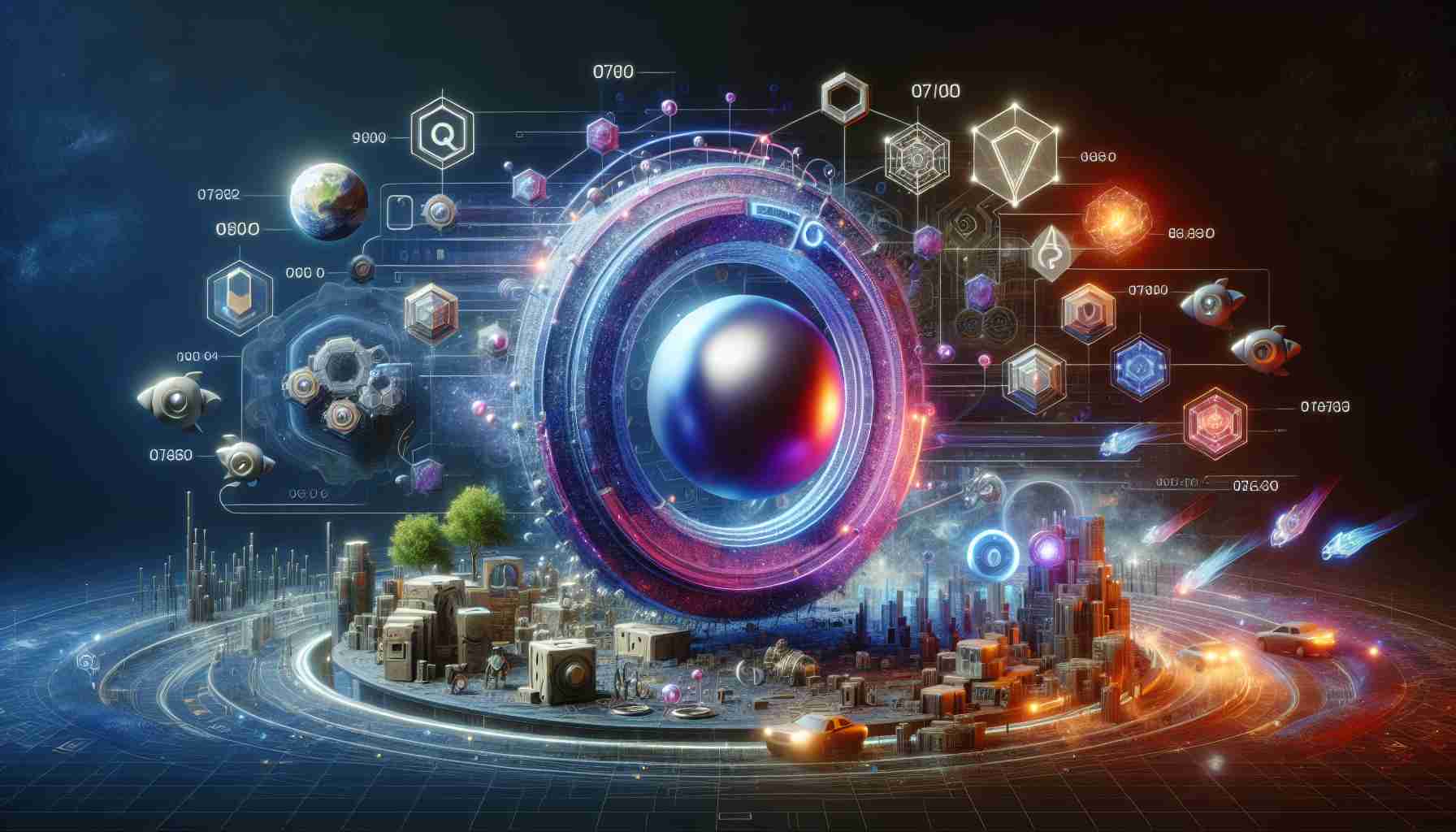In the rapidly evolving world of technology, Tencent Holdings Limited, listed as HKG: 0700 on the Hong Kong Stock Exchange, has consistently stood at the forefront of innovation. As we venture further into 2023, Tencent is poised to revolutionize the gaming industry in ways previously unimaginable.
Tencent, already recognized as a global gaming giant with titles like “League of Legends” and “PUBG Mobile,” is now investing heavily in emerging technologies like artificial intelligence (AI), virtual reality (VR), and cloud gaming. This strategic pivot could reshape how games are developed and played.
AI technology permits developers to create more immersive and responsive game environments, providing players with unique narratives and interactions tailored to their gameplay style. Meanwhile, VR technology promises to blur the lines between reality and the virtual, crafting worlds where players are more than mere spectators—they become part of an expansive, vivid universe.
But the true game-changer might be Tencent’s commitment to cloud gaming. With this technology, players can enjoy high-performance gaming experiences without the need for expensive hardware, as games are streamed directly from powerful remote servers. This model not only caters to a broader audience but also paves the way for more complex and graphically demanding games.
As Tencent continues its tech-laden march, HKG: 0700 may just be the ticket to the next chapter in gaming history, where immersive, accessible, and personalized gaming experiences become the norm.
Tencent’s 2023 Gaming Revolution: The Rise of AI, VR, and Cloud Gaming
In the intricate tapestry of technological advancements, Tencent Holdings Limited stands as a monumental pillar of innovation, pushing the boundaries of the gaming industry to new horizons. As we delve deeper into 2023, Tencent’s focus on integrating artificial intelligence (AI), virtual reality (VR), and cloud gaming not only marks a strategic evolution but also spells a potential renaissance in how we experience digital entertainment.
AI: Crafting Personalized Gaming Journeys
Artificial Intelligence is not just a buzzword; it is a transformative force that is redesigning the gaming landscape. Tencent’s investment in AI technology allows for the creation of games with adaptive narratives. This adaptability means that each player encounters a unique gaming journey, where in-game scenarios are dynamically adjusted based on the player’s actions and preferences. The result is an unprecedented level of personalization, turning players into co-authors of their digital adventures.
VR: Entering Alternate Realities
The realm of Virtual Reality pushes the envelope further by providing an immersive experience where the line between the game and the world as we know it is virtually erased. Tencent’s foray into VR technology is anticipated to lead to a new breed of games that transcend conventional two-dimensional screens, offering spatial interactions and environments. Players don’t just watch or control—they exist within these newly crafted universes, making the experience profoundly engaging and interactive.
Cloud Gaming: Redefining Accessibility and Performance
At the heart of Tencent’s innovative pursuit is its investment in cloud gaming infrastructure. Unlike traditional gaming models that rely heavily on user hardware, cloud gaming leverages powerful remote servers to stream games. This model democratizes access to high-quality gaming, allowing players with varying financial capacities to enjoy the same top-tier gaming experiences. By removing the hardware barrier, Tencent not only expands its reach to a wider audience but also sets the stage for games that are richer in detail and complexity.
Looking Ahead: Trends and Predictions
As these technologies mature, several trends and predictions underscore the future of gaming:
1. Rise of Subscription Models: Given the shift towards cloud gaming, subscription models akin to Netflix are expected to become prevalent in the gaming industry.
2. Enhanced Multiplayer Experience: With AI and cloud capabilities, expect multiplayer experiences to be more interactive, with real-time data processing enriching competitive aspects.
3. Sustainability: Leveraging cloud technologies could lead to reduced reliance on physical hardware, supporting a more eco-friendly gaming ecosystem.
Conclusion
With its strategic investments, Tencent is not just participating in the evolving gaming landscape; it is reshaping it. AI, VR, and cloud gaming are not standalone innovations but part of a convergent ecosystem set to redefine what gaming is and what it can become. The implications extend beyond entertainment, offering new paradigms in interactivity and accessibility that will likely influence future technological trends across industries.
For more insights into Tencent’s pioneering ventures, visit Tencent’s official site.



















